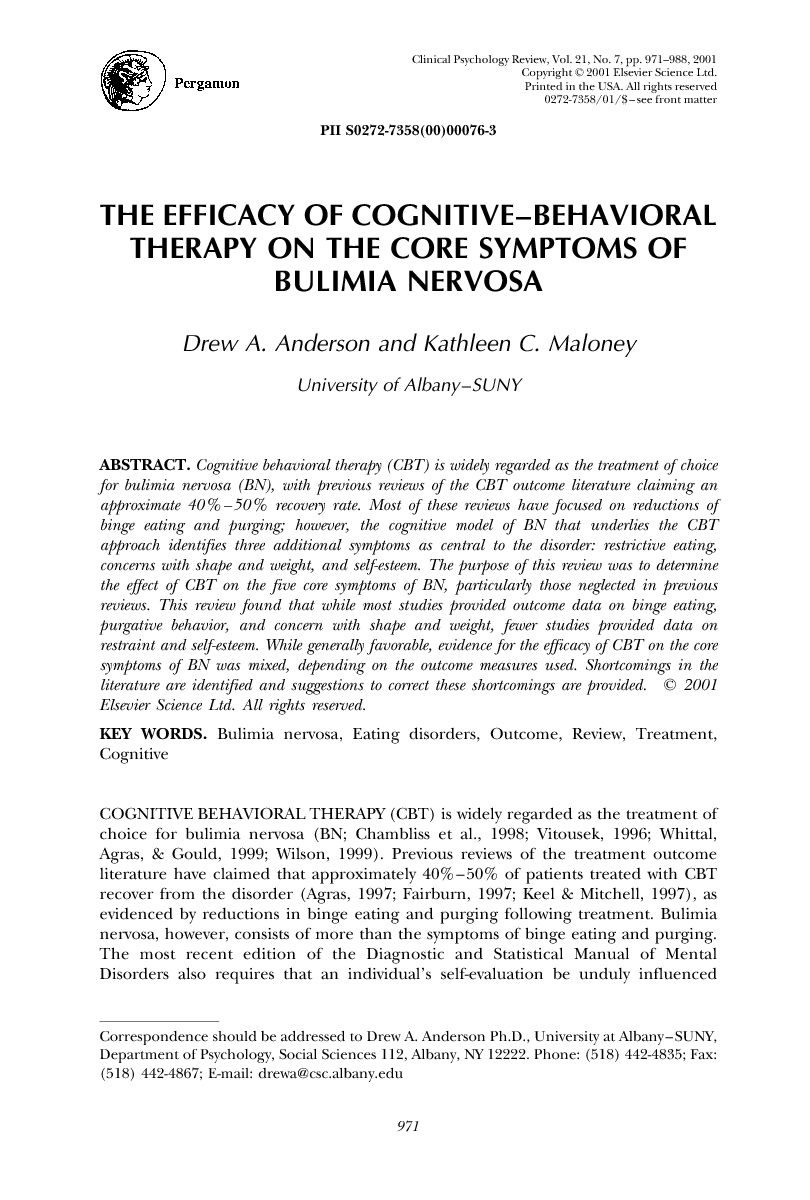ترجمه فارسی عنوان مقاله
اثربخشی درمان شناختی رفتاری بر علائم اصلی بولیمیا
عنوان انگلیسی
The efficacy of cognitive–behavioral therapy on the core symptoms of bulimia nervosa
| کد مقاله | سال انتشار | تعداد صفحات مقاله انگلیسی |
|---|---|---|
| 32483 | 2001 | 18 صفحه PDF |
منبع

Publisher : Elsevier - Science Direct (الزویر - ساینس دایرکت)
Journal : Clinical Psychology Review, Volume 21, Issue 7, October 2001, Pages 971–988
ترجمه کلمات کلیدی
بولیمیا -
اختلالات اشتها -
نتیجه -
بررسی -
درمان -
شناختی -
کلمات کلیدی انگلیسی
Bulimia nervosa;
Eating disorders;
Outcome;
Review;
Treatment;
Cognitive

